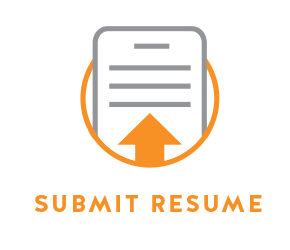Resume Tips From Staffing Pros
Resumes are essential no matter the industry. However, it can get confusing when it comes to what to include and what not to, or correct formatting, or fonts you should or should not use, etc. As seasoned staffing professionals, we wanted to share our dos and don’ts to help you create the perfect resume.
To start, here are our top three most important things to make your resume look as professional as possible
1. Correct formatting
Improper formatting can make resumes difficult to read, and recruiters and hiring managers may have trouble downloading them. Also, spacing! Do not leave too much white space — it can be distracting.
Keep the same fonts and sizes throughout — Arial, Calibri, Verdana, 12-point — except for your name, which should be 14-point font and bolded. See the example below.
2. Correct spelling and grammar
As recruiters and hiring managers, we assume you pay close attention to detail. If you submit a resume with misspelled words, improper word usage, incorrect punctuation, etc., you most likely will not be moving forward.
ALWAYS proofread your work multiple times! Once you think it is perfect, have someone else look at it for a fresh perspective. Also, do not rely on spellcheck to catch all the errors for you. Although spellcheck will usually highlight a misspelled word, it will not highlight incorrect context.
3. Explain your employment gaps
If you have a gap in your employment history, tell us why! It is better to be truthful from the get-go than leave gaps and have us assume you chose not to work. If you have done contract or temporary work, please specify. If it is not specified, we will assume you do a lot of job-hopping.
Other tips
Keep your resume to as few pages as possible
If your resume exceeds 2 1/2 pages, consider removing some content or adjust the spacing at the bottom of each page. We suggest keeping each position to about 3-5 bullet points — if we want to know more about a particular job, we will ask!
It is always best to quantify your bullet points. For example, if you worked in customer service, how many customers did you serve on average per day, or how many sales did you make on average per day?
If you have worked your way up the ladder with one job, just put the total amount of time at that job in the first line, then put the path of progression with promotions.
Tailor your resume to the job description
Only list skills pertaining to the job description or any skills you think may be helpful in the job. Some companies use an algorithm to weed out resumes based on keywords, so always read through the job description carefully.
Along with keywords, if you speak more than one language, please list them! While it may not be required to speak multiple languages, there are plenty of situations where it could be helpful, and it is impressive.
If you have multiple certifications, licenses, or awards, please only add them if they are relevant to the job posting or if they are unique.
What not to include:
Personal information. Do not add your birthdate or your physical address — only add the city and state you live in
No pictures, please. Adding a picture of yourself can lead to discrimination, and most companies are not allowed to move forward with your application if you put a headshot on your resume
Do not talk in the 1st or 3rd person
Objective statements. Objective statements are relatively obsolete and often generalized
Do not add negative comments about past positions or employers. It is unprofessional and often reflects poorly on you
Do not add soft skills. Your resume should only include your hard skills. If you want to tell us about your soft skills, you can write about them in a cover letter, or we can discuss them in the interview
Do not add references or say “References upon request” if we need references, we will contact you for them
Do not put multiple contact methods. It is best to stick with one phone number and one email. It starts to get confusing when people add several emails and phone numbers
What not to say:
Hardworking or a hard worker. We already assume you’re a hard worker. The same goes for a team player or self-motivated — we expect you to be these things regardless. Instead, talk about how you improved or achieved something. And again, please quantify your points
Negative words. For example, do not say can’t, won’t, unable, etc. Instead, specify what you CAN do
Accomplished. It is overused and eventually starts to lose its meaning after reading dozens of resumes. Instead, use achieved, increased or decreased, created or launched, etc
As we said earlier, it can get confusing knowing which format to use. We have pasted a link to Monster.com, which lists several different industries/positions, and what resume format is most common in those areas.
We hope you find these tips useful and please, share them with your colleagues!








